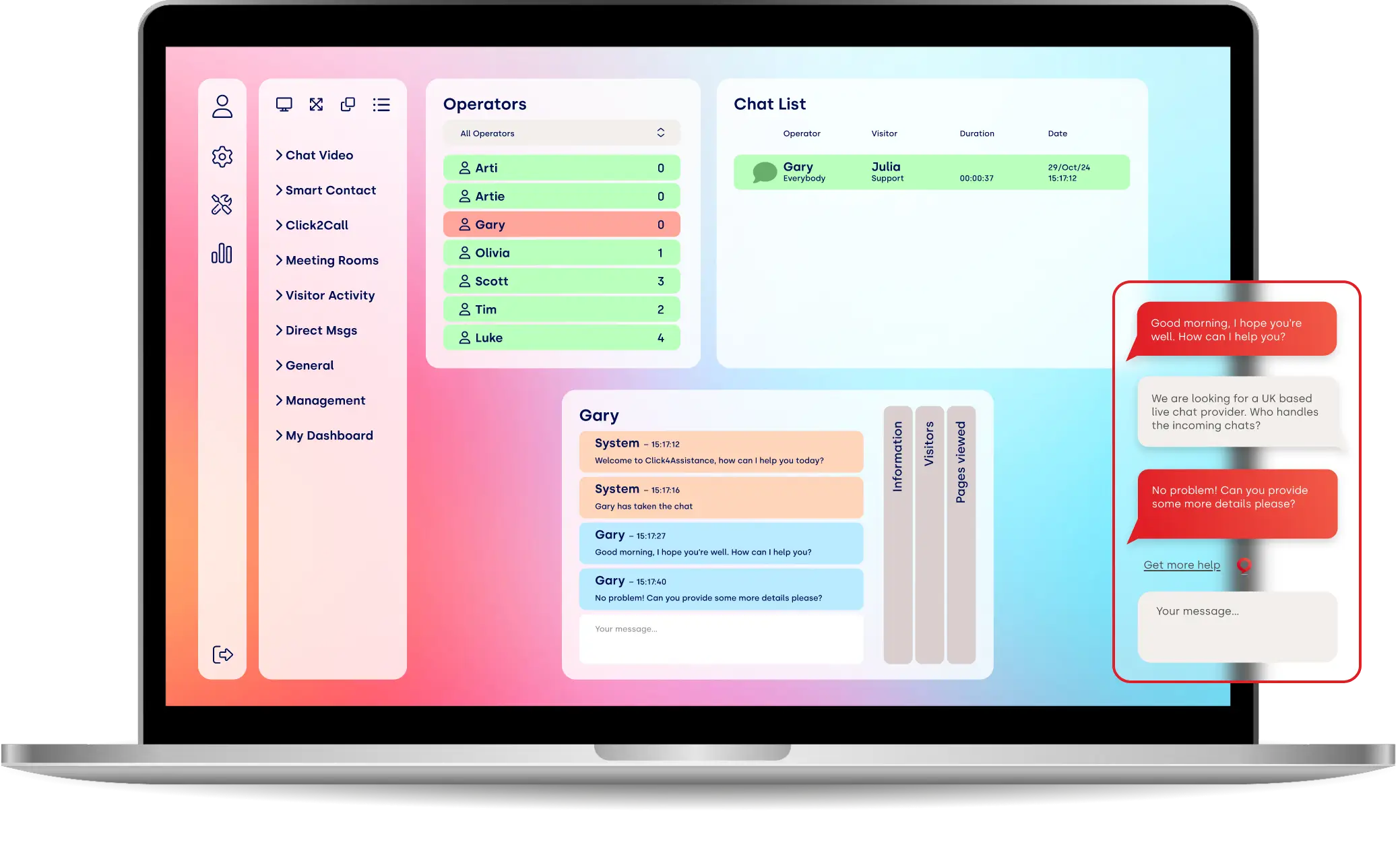Quantum Computing: A Looming Threat to Cybersecurity and How Tech Firms Are Responding

Explore quantum computing's threat to cybersecurity and tech firms' responses. Learn about Apple's "PQ3" protocol, Google's security efforts, and global initiatives safeguarding the economy.
Quantum computing is the next big tech trend to keep an eye on. We’re not yet in a world where quantum computing is seen everywhere or accessible to everyone, but we know enough about it to recognise it poses significant risks to modern cybersecurity. In essence, when we talk about quantum computing we’re talking about extremely intelligent and capable computers. They can handle and solve more problems than the average computer in a fraction of the time. It’s incredibly complex - we’ll explain more about it later on - but the gist is that we’re dealing with the most advanced computers the world has ever known.
It’s not surprising that a computer capable of solving problems in an instant poses cybersecurity risks. There’s a worry that these quantum computers could easily bypass encryptions and passcodes, paving the way for sensitive data to be stolen or corrupted. The good news is that quantum computers are still relatively far away, so tech firms are getting out ahead of them by developing security protocols and systems specifically designed to protect against quantum attacks.
Want to know more about the specifics of how tech companies are responding to quantum cybersecurity risks? Our article takes a deep dive into this and explains all you need to know about quantum computing.

What is Quantum Computing?
Amazon Web Services defines quantum computing as a multidisciplinary field comprising aspects of computer science, physics and mathematics that utilizes quantum mechanics to solve complex problems faster than on classical computers.
A quantum computer is similar in some ways to a classic computer, but the big difference lies in how information is processed. The geniuses at Caltech explain that quantum computers use quantum bits (qubits) while regular computers use classical bits (represented as a one or zero) to process information. A qubit can be a superposition of one and zero at the same time while also being entangled and linked by quantum mechanics to one another. In turn, the complexity of quantum bits means quantum computers have far wider capabilities than classic ones.
Quantum computing is hard to understand as you need a grasp of quantum mechanics to get what’s going on - which few people on this planet do. One simple way to view it is to see classic computers as light switches. They’re either on or off. Quantum computers can be on, off, on and off and so much more.
The best real-world example of quantum computing’s power comes from 2019 when Google used a quantum computer to solve one extremely complex problem. It’s seen by many as a groundbreaking moment in the world of quantum computing, demonstrating the scope of its power. This problem would take a supercomputer around 10,000 years to solve, yet it took the quantum computer 200 seconds.
Let that sink in for a second and it becomes apparent why many are worried about the sheer power of quantum computing and what it means for cybersecurity in the future.

Tech Companies’ Response to Quantum Cybersecurity Risks
Tech companies are worried about quantum computing - and rightly so. Imagine a major bank with millions of customers’ financial data held behind encrypted safeguards. A quantum computer comes along, assesses the cybersecurity setup and immediately provides a solution to bypass all security measures. Suddenly, all of this data is compromised and it will mean people lose a lot of money.
This can happen to businesses around the world, so there must be a response to this. Better yet, there should be systems in place before quantum computers become commonplace and quantum computing is used throughout different industries. The two companies leading the way in this are Apple and Google.
We’ll start with Apple as they recently announced a security system called PQ3 to protect data shared via iMessage. It builds on the existing encryption technology already used by Apple devices but adds new layers specifically designed to protect against quantum attacks. There’s a hybrid design combining Elliptic Curve cryptography with post-quantum encryption.
Google spoke of a similar thing in 2022 when it released an article stating it now protects internal communications from quantum threats. It’s using post-quantum cryptography to protect its existing ALTS encryption from being threatened by quantum computing in the future. The odds of either Apple or Google’s systems facing quantum cyber threats now are slim, but having the framework to protect against quantum computing before it rears its head will only be positive.

Safeguarding the Global Economy
Tech companies won’t be the only ones responsible for protecting against quantum technology in the future. There are genuine concerns about the threat to the global economy - The Global Risks Report 2024 specifically outlines this in one of its main talking points.
The report states that quantum computers could be powerful enough to break public key encryption and steal money as well as sensitive personal data. Worse still, these attacks can be so powerful and run so deep that they cause huge problems for hospitals, banks and even power grids.
Consequently, the powers that be are being encouraged to transition to a quantum-secure economy. This was proposed in 2022 by the World Economic Forum and it produced a whitepaper explaining how to begin the quantum-safe transition and what’s required to adopt a quantum risk management approach.
Tech giants will obviously play a pivotal role here in sharing their technology to safeguard against quantum computing. Governments will need to take this on board and make widespread implementations to ensure the most critical areas of infrastructure are protected from future and current threats.
Quantum Computing Applications
There’s no doubt that quantum computing is one of the most hotly anticipated breakthrough technologies of the modern era. It has plenty of potential applications and uses that extend beyond problem-solving, such as:
- Enhanced cryptography - While we’re rightly worried about quantum computing’s ability to break existing encryption methods, it can also go the other way. We can use quantum computers to create new encryption methods that are far superior to what’s currently out there and almost impossible to break.
- Smarter AI - Many see AI and quantum computing as separate entities, but they can work together to be more powerful. The AI revolution will take another step forward if it harnesses the power of quantum computing. The ability of quantum computers to solve problems in seconds means artificial intelligence can learn on the go and become far smarter than ever before. It paves the way for AI assistants that can answer your every question and help find solutions for your most challenging work problems.

- Better batteries - Quantum technology has the chance to transform batteries as we know it. Many companies are experimenting with quantum batteries that can charge faster and harvest energy from light sources. This could revolutionise the EV industry by making car batteries smaller, more affordable and far more efficient. In turn, think of the knock-on effects this could have on climate change and greenhouse gas emissions.

- Scientific discoveries - Perhaps one of the best applications of quantum computing lies in the many realms of science. These computers have the power to simulate molecules and see how atoms behave. As a result, scientists can use quantum computer simulations to try and discover new drugs to treat harmful conditions and introduce new treatments to the world. Likewise, some scientists are currently experimenting with atom/molecular simulations to try and make new, more sustainable, materials.

Benefits and Limitations of Quantum Computing
A technology such as this will come with pros and cons. You might be able to deduce a few already, but let's have a look at where quantum computing excels - and where it may pose some problems in the future.
Starting with the benefits, it’s evident that quantum computers will:
- Lead to huge breakthroughs across many industries thanks to capabilities that far exceed anything we currently see from classic and supercomputers.
- Boost productivity and efficiency in various sectors by speeding up data analysis and helping to create faster and more proficient AI models.
- Vast improvements in data storage and collection, further enhancing productivity and security.
In all honesty, the first point is the main advantage. Quantum computing has the power to change and shape the world by providing ground-breaking technology that’s usable across many industries. However, it is not perfect - experts currently identify the following limitations:
- Manufacturing and maintaining quantum computers requires lots of resources and is extremely expensive. This creates doubts about the accessibility of quantum computers in the future.
- As mentioned throughout this article, quantum computing holds clear cybersecurity risks. People worry that the benefits of this technology will be outweighed by the damage it can do if it gets into the wrong hands.
- Technical challenges arise throughout quantum computing as qubits often cause errors depending on various environmental factors that are hard to prevent. What’s worse, experts are struggling to correct errors without causing further problems to the quantum system.
Overall, quantum computing is an intriguing technology that will continue to develop far into the future. It holds the power to change the world, yet it can also be one of the biggest cybersecurity threats we’ve ever seen. Tech companies already notice this, which is why they’re implementing post-quantum security practices to rethink data encryption and protect against future quantum cyber-attacks. Who knows how far we can go with quantum computing - for now, it requires more development before we see it as a mainstream piece of tech.

Adding a chatbot to your website can significantly enhance your cybersecurity efforts, particularly against emerging threats like quantum computing. Even though commercially viable quantum computers don’t yet exist, cybercriminals are already targeting sensitive data in anticipation of future vulnerabilities. To address this threat, companies and governments are exploring three key technologies:
- Post-Quantum Cryptography (PQC): Designed to replace traditional encryption standards like RSA, PQC offers a higher level of security and can protect transactional data such as online commerce and consumer retail.
- Quantum Key Distribution (QKD): Provides quantum-level security for data transmission by securely connecting senders and receivers using existing fibre-optic cables, ensuring data is only accessible to the intended recipient.
- Photon Entanglement Distribution: Leverages quantum mechanics to create secure communication channels by linking entangled photons between multiple parties, offering an additional layer of security against quantum attacks.
Combining these three technologies offers unparalleled opportunities to enhance cybersecurity. By adding a next generation chatbot to your website, powered by quantum computing principles, you can provide an additional layer of security for your online interactions. This hybrid approach ensures secure and encrypted communication channels for your website users, protecting their data from emerging cyber threats.
Join our LinkedIn community to delve deeper into how quantum computing is reshaping businesses across various industries. Gain unique insights, engage in impactful discussions, and stay updated on the latest trends shaping the future of work. Let's navigate this transformative journey together and explore the exciting possibilities of Industry 4.0.

























